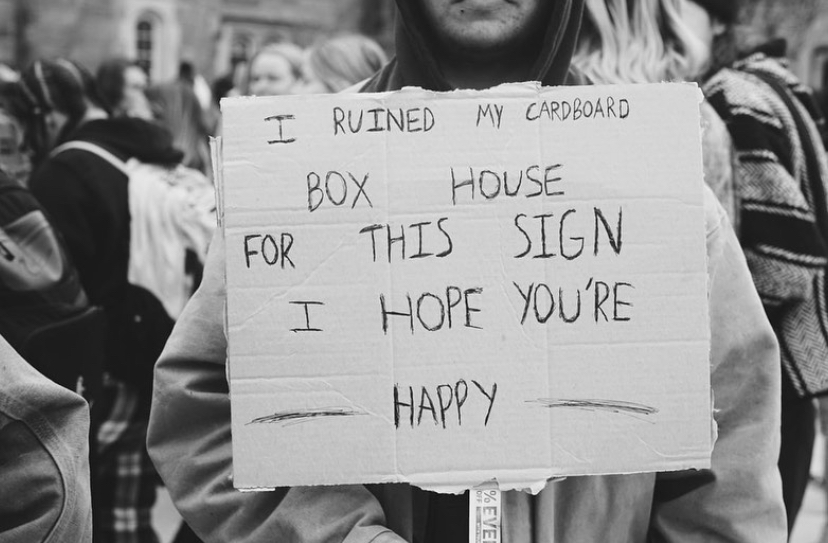Photo via wcu_housingcrisis
In the March 16, 2023 issue of the Quad, I published an article titled “The Reality of the Housing Crisis: An Interview with Sydney Pike”. In this article, Sydney discussed her struggles with getting housing. Her disability, caused by an episode of stress-induced cardiomyopathy, made her issues with housing even more devastating. Sydney’s story brings to light a very real issue that the housing presents: the unintentional targeting of students with disabilities.
As a disabled student myself who was overlooked during the housing process and ultimately denied housing, I was left with very few options. I spent my winter break scrambling to figure out what I would do. I ended up dropping a second major I had begun working towards. I was then forced to rework my entire schedule in an attempt to graduate this semester because of my lack of housing options.
There are not many opportunities once students are denied on-campus housing. You could become a commuter, get an off-campus apartment or risk waiting to see if you’ll move up the waitlist (which, by the time you hear about that, many off-campus housing options will be accounted for already). Each of these options presents their own setbacks. These options can be even more unattainable for people dealing with disabilities.
To begin with, some people with disabilities are not able to get jobs while in college, such as Sydney and myself. Off-campus housing is overwhelmingly expensive, and especially for those of us without jobs, it is a much larger burden to bear.
Furthermore, some people with disabilities are also not able to drive, such as Sydney, or they may not have access to a car on campus. This leaves students in a difficult position. We have to find off campus housing that is close enough to campus that it is accessible, as well as is affordable to someone who may not be able to consistently work. This doesn’t even take into account the cost of commuting or driving to classes. It creates a vicious cycle: if your disability prevents you from getting a job, it can prevent you from affording a car, which can make it even more difficult to get where you need to go.
Please don’t get me wrong: affordability and accessibility are issues that all students face, and it is devastating that any student has to be put in this position at all. However, this situation unfairly targets people with disabilities because we cannot change our situation. I do not have the choice to suddenly be able to walk long distances to reach my classes. To make matters worse, finding out through the email on Dec. 9 that the housing process was largely randomized, and therefore didn’t take into account my own disability, was crushing. Self-advocacy is strenuous when it feels meaningless.
This is what I mean when I say that this housing crisis has unfairly targeted disabled students. Those of us who were ignored in the housing process are left, metaphorically, between a rock and a hard place. I felt overlooked and ignored, and most of all, undervalued. I know how lucky I am to be able to be here today, attending university. I also know how lucky I am to have been able to change my schedule and graduate this semester rather than next year. But it is salt in the wound to recognize the opportunities that I feel I have lost out on because of the housing crisis. All students deserve housing. All students with disabilities deserve to be heard and acknowledged.
A randomized housing process that ignored so many students with disabilities has unintentionally robbed so many students of a safe, secure and housed future at West Chester University.
RJ Jacobson is a fourth-year political science major with minors in English and journalism. RJ923931@wcupa.edu.

